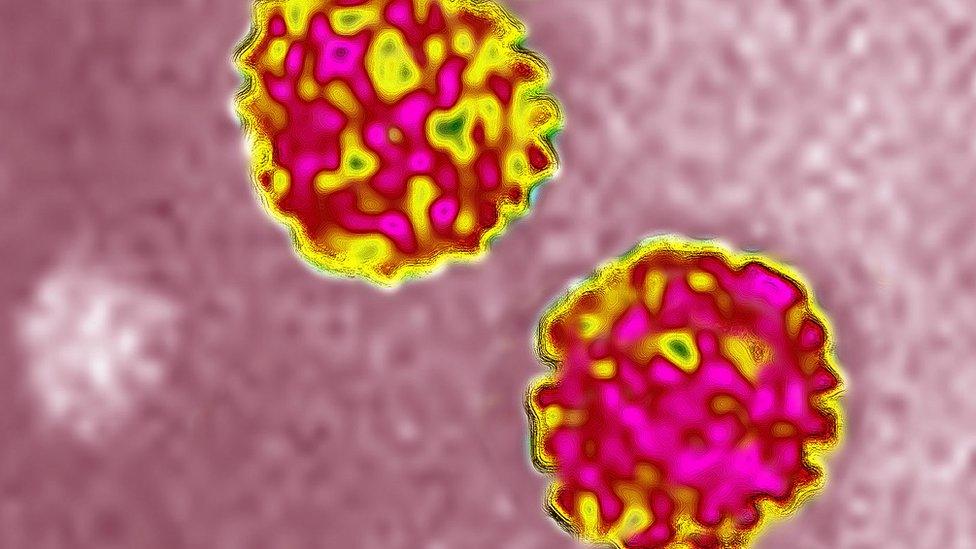Charity calls for new focus to combat Hep C infections
- Published

Up to 74,000 people in Scotland may be living with Hepatitis C, a disease which campaigners say is now curable
A charity has called for greater efforts to eliminate Hepatitis C (HCV) from Scotland.
There are about 37,000 people living with the virus - but campaigners say as many again are undiagnosed.
A meeting in Edinburgh on Tuesday will call on the NHS to alter its focus so Scotland can be free of the disease by 2030.
The Scottish government published a new policy on sexual health and blood borne virus treatment in 2016.
Scotland has a, a disease affecting the liver, and often associated with drug injecting.
A greater proportion of those affected have been treated here than any other UK nation.
New cases
But the charity Waverley Care said Scotland also has the highest prevalence of the virus in the UK and 1,800 new cases are diagnosed each year, which meant a different approach should now be adopted.
It said an "informal inquiry" has been established into the eventual elimination of the disease, which chief executive Grant Sugden said was achievable as new treatment options mean Hepatitis C is now curable.
He said: "The NHS in Scotland is only treating the most severe cases at the moment.
"But we must work with those who have presented with the virus, but whose symptoms are not severe at the moment and crucially we must do more to diagnose those living with HCV, but who have not been diagnosed."
Waverley Care is supporting Barlinnie prisoners who have Hepatitis C
The Scottish government said it had long been at the forefront of addressing Hepatitis C and was committed to playing its part in helping achieve the World Health Organization's goal of eliminating the virus as a public health threat by 2030.
Ivan McKee, SNP MSP for Provan, who will chair the meeting in Edinburgh said: "To succeed, we need to support and encourage a flexible approach to help NHS Scotland and health boards to drive forward elimination by developing new models of care and improving access to screening, diagnosis and treatment.
"This will help to ensure Scotland's ongoing commitment to addressing HCV in a robust and sustainable way and support those with HCV to clear the virus and move on positively with their lives."
'Right support'
Waverley Care has launched a scheme focusing on prisoners - it is estimated that .
Operating at Scotland's largest prison, Barlinnie, it aims to support those released at the end of their sentence with services for housing, education and healthcare and help them access treatment for HCV.
Billy Davidson, Waverley Care's prison link worker at Barlinnie, said prisoners who were HCV positive could easily obtain treatment while serving their sentence.
But he added: "One of the biggest challenges is them falling out of the healthcare system once released.
"Often it's because they don't have support with practical issues, like finding somewhere to live or getting a job.
"By working with prisoners to plan for their release, we can make sure the right support is in place and help them to access the treatment that will allow them to clear their Hepatitis C."